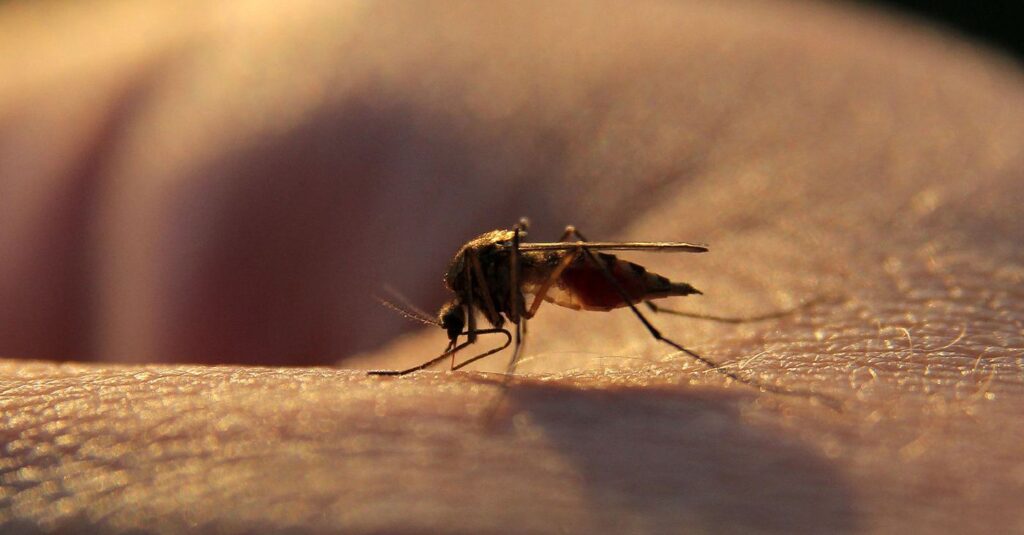‘Music To My Ears’: New Malaria Drug Succeeds In Large Clinical Trial To Combat Resistance

Among the world’s manifold disease burdens, antibiotic resistant bacteria hold a special place of concern. But recent evidence points to the malaria parasite also developing resistance to drugs that have been working to killed it off for the last quarter-century.
Therefore, news that a major drug trial looking at the efficacy of a new-class of antimalarial medication called KLU156 found it was just as reliable as exiting treatments will come as a major sigh of relief.
Existing frontline malaria medication is based on a plant-extract from sweet wormwood called artemisinin, combined with other compounds. The resulting ACT (Artemisinin-based combination therapies), has been recommended as an antimalarial medication since 2001.
Its discovery yielded Chinese scientist Tu Youyou, who synthesized artemisinin from sweet wormwood in the 1970s, a Nobel Prize in 2015. It also forever fortified the notion that traditional Chinese medicine maintains value in the modern age, as it was this herbal, astrological practice that prescribed sweet wormwood as a fever treatment.
The new compound was identified by the Swiss pharmaceutical company Novartis, which rather than combing the annals of traditional Alpine medicine, used sophisticated computing to analyze some 2 million different pharmaceutical compounds for their antimalarial potential. The result was ganaplacide, which was combined with lumefantrine, the partner drug in ACTs, to create KLU156.
KLU 156 cured malaria in 99.2% of cases in a study of 1,600 people from 12 different African countries, compared to 96.7% of those who were treated with lumefantrine alone. One might consider that difference insubstantial, but when over half a million people die in Africa alone of malaria every year, that 2.5% is anything but.
The study was presented at the annual meeting of the American Society of Tropical Medicine and Hygiene.
“Having a new compound that is not artemisinin-based, and that is that effective and safe, is really music to my ears,” said study team member Abdoulaye Djimdé, a malaria researcher at the University of Sciences Techniques and Technologies of Bamako, Mali, at a press conference.
Research into KLU156’s effects demonstrated that not only did it kill malarial parasites faster, but the reproductive stage of the parasite that’s picked up by mosquitoes when they feed on humans, meaning the drug may aid in transmission interruption as well.
MORE MALARIAL TREATMENT OPTIONS: ‘Cheaper, More Humane’ Drones Emerge as Key Weapon in Mosquito Control from Poland to Africa
The taste, however, is dire, and caused 20% more instances of vomiting, leading to 10-times as many interruptions of treatment. Work is ongoing to discover how to mask the taste of the powder that has to be dissolved in water.
Novartis has said it will look to get the drug approved as fast as possible, before marketing it at cost.
But even once that occurs, debate is ongoing over when to use it. With antibiotics, new drug options are often kept on the shelves until it’s clear existing treatments are failing. Some researchers say that KLU156 can’t afford to be withheld because lumefantrine is a partner drug for both ACTs and KLU156.
SUCCESS IN AFRICA: First African Nation to Eliminate River Blindness Treated Millions with Ivermectin to Achieve Great Success
Plasmodium falciparum and P. vivax have already developed resistance to artemisinin, and it’s feared that because more malarial cells are surviving in the body for longer, the template is there for it to quickly develop resistance to lumefantrine. If that happened, the efficacy of KLU156 would be dampened even before any benefit was received.
Science Magazine, reporting on the study, wrote that a proposal has been made to use KLU156 during the earliest possible malaria season, followed by ACTs during the next one, and then alternating between the two.



Please be good and do not spam. Thank you.